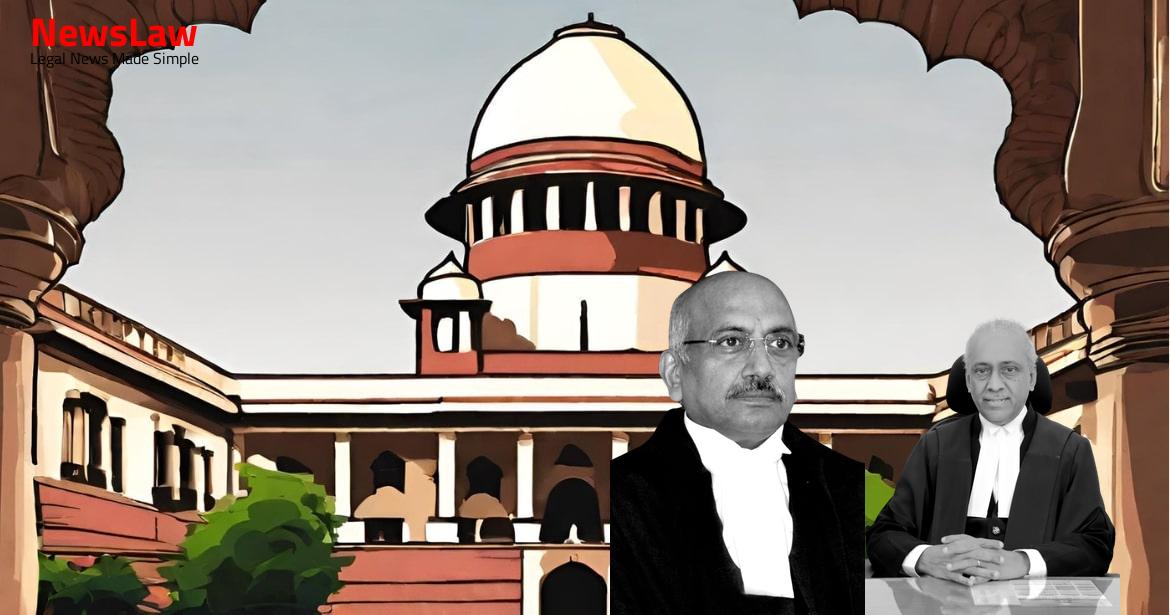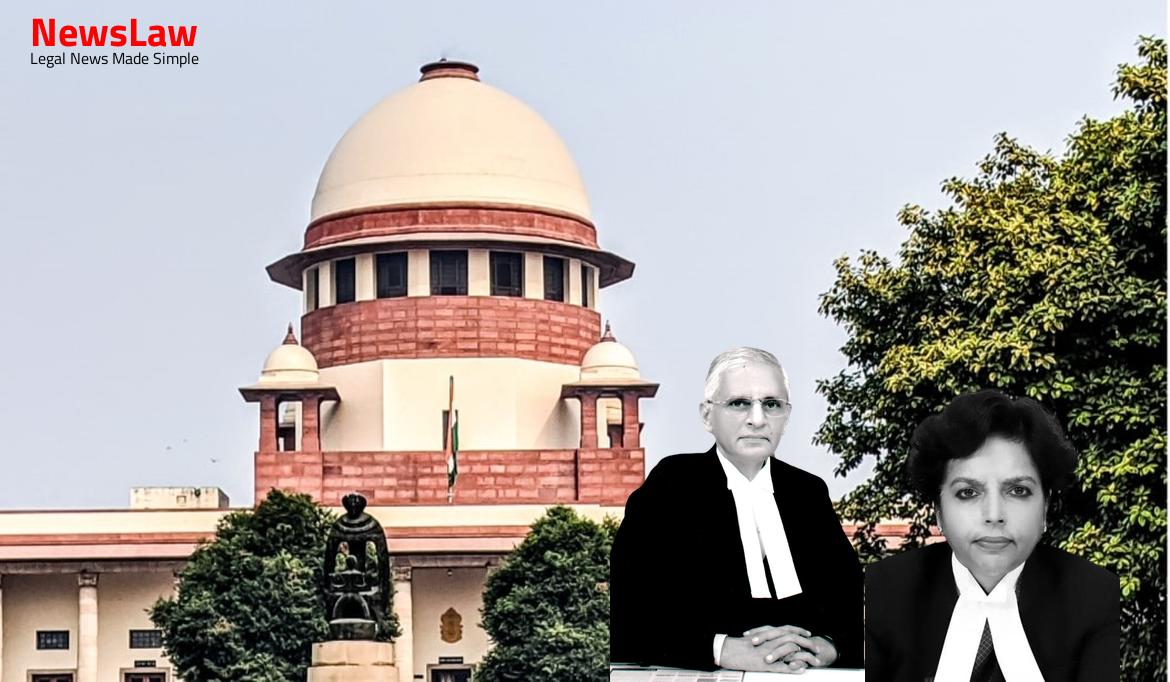Legal cases involving compassionate appointments often hinge on the interpretation of amendments by the courts. The conflict arises from the impact of amendments, whether they withdraw or enhance existing benefits. This summary focuses on the in-depth legal analysis conducted by the court in navigating these complexities. Stay tuned for insights into how courts approach and resolve such delicate legal matters.
Facts
- The new Scheme alone would apply as it contained a specific provision mandating all pending applications to be considered under the new Scheme.
- Appointment on compassionate grounds is an exception to the regular mode of recruitment, intended to provide succor to the family of the deceased Government servant.
- Appointment on compassionate grounds in Karnataka is governed by the Karnataka Civil Services (Appointment on Compassionate grounds) Rules, 1996, subsequently modified by a policy in 2005.
- The amendment to the Rules was held to be retrospective in nature by the High Court, allowing the consideration of an application based on parameters laid down in the 2005 policy.
- An unmarried brother of a deceased female unmarried Government servant was included in the definition of ‘dependant of a deceased Government servant’ through an amendment in 2012.
- The Tribunal allowed the application on the ground that the 2012 amendment would apply retrospectively, covering the case of the respondent who had applied before the amendment.
- The employee died on 10.10.1998.
- The application for appointment on compassionate grounds was made under the Scheme of the year 1993.
- A circular bearing No.56/79 dated 4.04.1979 containing a Scheme for appointment on compassionate grounds was in force on these dates.
- The application was rejected on 30.06.1999.
- A new Scheme was brought into force on 24.07.2004 after the death of the employee.
- The 1993 Scheme was known as the ‘Dying in Harness Scheme.’
Also Read: Legal Analysis on Settlement Claims in Money Suit
Arguments
- In the case at hand, there are two lines of decisions by Benches of equal strength regarding the interpretation of amendments.
- The conflict arises from the difference between amendments that withdraw existing benefits versus those that enhance existing benefits.
- This Court’s interpretation varies based on the nature of the amendment made.
- The High Court’s view in Akkamahadevamma regarding the insertion of additional words in an existing provision is questionable.
Also Read: Analysis of Possession and Ownership Rights
Analysis
- Interpretation of the applicability of a new or modified Scheme after the death of an employee has led to interesting findings.
- Date of consideration of the claim as a criteria can lead to different results for different applicants.
- In cases where benefits under an existing Scheme were enlarged by a modified Scheme post the employee’s death, the Court applied the Scheme in force at the employee’s date of death.
- Compassionate appointment has been considered an exception to the normal recruitment process, with more concern for rule of law than individual compassion.
- In some bank cases, rules in modified schemes provide for pending applications to be decided under the new scheme.
- An amendment made was held to be retrospective in nature by the High Court.
- The conflict arises between applying the Scheme in force at the date of death or the date of consideration of the appointment application.
- No automatic right exists for an appointment on compassionate grounds; it is subject to stringent scrutiny.
- Amendments introduced post-death of employees may not automatically apply to pending applications if not specified in the new Scheme.
- The interpretation of the applicability of a modified Scheme should be based on a fixed criteria like the date of death, not a variable factor like the date of application consideration.
- Different results based on individual actions are inconceivable in interpretation rules.
- Several decisions have led to a conflict in interpreting revised Schemes based on the two fixed dates.
- Rules of interpretation should not depend on indeterminate or variable factors for decision-making.
- A specific provision in the new Scheme mentioned that pending applications under the old Scheme would be processed under the new one.
- When modified Schemes reduced existing benefits, those were applied, and when they granted larger benefits, the old Scheme was maintained.
- Indeterminable factors like date of consideration should not impact the interpretation of rules.
- The dependant must apply within a specified time from the date of death if a minor dependant seeking compassionate appointment.
- The appointment of individuals made on compassionate grounds was cancelled due to amended provisions, leading to challenges before the Court.
- The dependant of a government employee, without any vested right, can only demand consideration of their application.
- Dependants are disentitled to seek the application of norms prevailing on the date of the government servant’s death.
- Several cases were referred to a larger Bench for consideration of the conflicting opinions.
- Multiple decisions were made, including in cases like Indian Bank vs. Promila and State of Madhya Pradesh vs. Amit Shrivas.
- The basis for consideration of a claim for compassionate appointment should be the norms prevailing at the date of application.
- A case can be made within one year from the date of attaining majority.
- The distinction between an employee with permanent status and regular status was discussed in the context of compassionate appointments.
- Opinions from previous cases like Indian Bank vs. Promila were reasserted.
- The order of reference to a larger Bench was dated 8.02.2019.
- The Judgment in Akkamahadevamma was not applicable to compassionate appointments.
- The amendment in Akkamahadevamma was a result of the existing rule being declared ultra vires Articles 14 and 16 of the Constitution.
- The appeal is allowed and the orders of the High Court and Tribunal are set aside.
Also Read: Analysis of Representative Complaints in Consumer Protection Cases
Decision
- Application for compassionate appointment dismissed
- No order as to costs
Case Title: THE SECRETARY TO GOVT. DEPARTMENT OF EDUCATION (PRIMARY) Vs. BHEEMESH ALIAS BHEEMAPPA (2021 INSC 907)
Case Number: C.A. No.-007752-007752 / 2021



